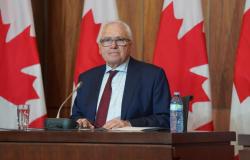the essential
Offer a trip to the heart of legendary fashion houses. With the Little Book collection, immerse yourself in the history of luxury icons.
Christmas is approaching, and finding the perfect gift can become a real headache, especially for fashion enthusiasts. If you are looking for an elegant, enriching and stylish present, the Little Book collection is a brilliant idea. These books dedicated to major fashion houses, such as Dior, Louis Vuitton or Prada, combine beauty and captivating content. Each book explores the history, creations and unique imprint left by these legendary brands. Find out why these books make ideal gifts for fashion and culture lovers.
A selection for fashion enthusiasts:
Little Book of Dior: the timeless elegance of a legendary House
Little Book of Dior – The story of a legendary fashion house is a captivating work. It immerses the reader in the fascinating world of the House of Dior, emblem of French elegance. This book traces the history of this fashion institution from Christian Dior’s first collection in 1947 to the contemporary creations of Maria Grazia Chiuri.
With its 160 richly illustrated pages, this little book offers a detailed exploration of the key moments of the House of Dior. It highlights iconic concepts like the New Look, but also iconic accessories like the Lady Dior bag and legendary perfumes. The many iconic figures of the brand are also presented in this book.
The Dior Little Book comes in a practical 19 x 13 cm format with a hardback binding, making it a perfect gift for fashion and luxury enthusiasts. This book reveals the secrets and avant-garde of the Dior silhouette. It celebrates the bold creativity of different creators.
Les points forts du Little Book of Dior :
-
Captivating story : explores the beginnings and evolution of Dior.
-
Focus on creations : highlights striking pieces like the New Look.
-
Elegant edition : compact design and iconic photos.
BUY HERE
Little Book of Hermès: craftsmanship serving luxury
The Little Book of Hermès is a fascinating work that explores the legacy and impact of the Maison Hermès, a symbol of elegance and luxury since its founding in 1837. Through its 160 beautifully illustrated pages, the book traces the evolution of the brand. It highlights his iconic creations such as the famous Birkin and Kelly bags, but also his iconic silk scarves.
Each page reveals the fundamental values of the House, including the exceptional craftsmanship, innovation and know-how that have shaped its identity over the decades. This small book, in a practical format and carefully bound, is aimed at fashion enthusiasts and luxury lovers.
The highlights of the Little Book of Hermès:
-
Overview of icons : iconic bags, scarves and accessories.
-
Focus on crafts : reveals the techniques behind the creations.
-
Focus culturel : explores the impact of Hermès in the world of luxury.
ORDER HERE
Little Book of Louis Vuitton: travel and innovation at the heart of fashion

Little Book of Louis Vuitton – The story of a legendary fashion house traces the extraordinary history of the Maison Louis Vuitton, a global icon of luxury and French know-how. This book explores the brand’s evolution from its origins as a manufacturer of travel trunks in the 19th century to its current status as an internationally renowned fashion and accessories brand.
Through its richly documented pages, the book highlights the innovations of Louis Vuitton. The book offers a fascinating dive into the world of the House. It reveals the secrets of creation, key figures and artistic heritage. With a compact format and careful presentation, Little Book of Louis Vuitton is aimed at fashion enthusiasts and collectors.
The highlights of the Little Book of Louis Vuitton:
-
Historical development : retraces the key stages of the House.
-
Artistic collaborations : highlights innovative partnerships.
-
Focus design : enhances classic and modern collections.
SHOP HERE
The Little Book collection is not limited to books on fashion. Each book becomes a decorative object, perfect on a coffee table or a shelf, while being a source of inspiration. Offering one of these books is an invitation to delve into the history of contemporary brands. With a practical format and richly illustrated content, these books delight fashion enthusiasts.
The prices mentioned are indicative and are subject to change. The Independent may receive a commission in the event of a purchase on the partner site.








